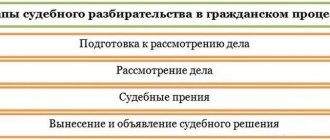“Adults often do not imagine what kind of suffering a child is experiencing,
when two people he loves suddenly break up,”
Helmut Figdor,
teacher-psychanalyst, child psychotherapist.
When a man and woman get divorced, they face many social, economic and other problems that most of them never imagined. But the main problem for parents is how to explain to their child that mom and dad will no longer live together and how to minimize the consequences of divorce on the child’s psyche.
In this article you will find answers to these and many other questions.
During this difficult time, surround your child with tender care rather than excessive control. Know where he is at the moment and listen to what is happening around him without annoying calls and SMS. Install the "Where are my kids" app right now.
Is it worth saving a marriage for the sake of a child?
This question is asked by spouses in whose relationship there is no longer mutual understanding and love, quarrels have become more frequent, and often each of them is visited by thoughts of divorce.
Some make a choice in favor of the child, do not want to traumatize his psyche and remain to live together, but as strangers. Others decide to divorce and feel guilty that they could not preserve a happy childhood for their child, when mom and dad love and care for their baby together.
But remember, dear parents: saving a marriage makes sense only when the parents behave respectfully towards each other and can resolve their differences. Otherwise, constant scandals, life in an atmosphere of hatred and irritation of parents towards each other will leave a deep mark on the mental development of the child.
As a rule, children deeply experience everything that happens between their parents. And they feel that mom and dad no longer love each other and don’t want to be together.
Therefore, before answering this question, think about whether you and your spouse can maintain an atmosphere of acceptance and respect in the family, or whether it would be better for you to separate and live separately from each other.
Consequences
Problems associated with parental divorce are often reflected in children's adult lives. Difficulty arises in interacting with the opposite sex due to a lack of trust in the chosen one. Children who grew up in a single-parent family are convinced that every person is capable of betrayal and treason. Mistrust and suspicion make it difficult to create a happy family.
Children raised by divorced parents do not view marriage as a permanent and long-term union. They are unable to honor lifelong commitments and often change partners . Instability in relationships can be seen not only in marriage, but also during dating.
Men who grew up with a mother without a father are more hostile towards people of the same sex. They view guys not as competitors in the fight for the heart of the lady they like, but as enemies.
They often become pathologically jealous, strive to control their life partner , and set ridiculous restrictions on their social circle.
Other men, raised without a dad, act as rescuers in relation to the women they like. In adulthood, they often take “guardianship” over young girls, becoming generous, but demanding patrons of decency.
If a man lived in his father’s house as a child without mother’s love, he transfers hatred to his life partner. This is an unfriendly, uncompromising, cynical and critical husband who ridicules his wife for the slightest mistake. Such a person is prone to committing acts of domestic violence.
Women from divorced families will be overly meek or overly dominant in their own marriages . In the first case, they want to see in the chosen one a kind, caring father, whom they respect and idolize. They rarely contradict their spouse, taking the position of a victim.
In another option, women strive to subjugate the will of a man. Girls raised with the mindset that they need to get the most from guys become domineering, selfish, mercantile people, thinking exclusively about their own convenience.
Growing up in a single-parent family increases the likelihood:
- disputes and disagreements with the spouse, intransigence, inability to compromise;
- capriciousness, demonstrative behavior;
- infidelity or jealousy;
- excessive alcohol consumption, drug use.
Some people struggle to form quality romantic relationships . They do not start a family and suffer from loneliness. Others impulsively rush into unhappy marriages, dooming their own children to suffer.
When parents divorce after their children reach adulthood, it is easier for young people to overcome stress. Girls and boys are later able to create their own families, but manipulation is typical in their marriages, which worsens family dynamics. When adult children have their own strong opinions about their parents' divorce, tension in the relationship can arise. Since mature individuals tend to defend a strong point of view, this causes misunderstanding, anger, and confrontation.
Divorce of parents through the eyes of a child
How do children cope with their parents' divorce?
How will you feel when someone you love so much suddenly leaves you? Remember: children are experiencing not just a divorce from mom and dad, but their own divorce from one of their parents, their loss.
Children do not suspect that family relationships depend not only on the love of parents for children, but also on the love and respect of mom and dad for each other. And they worry not only because dad leaves home because of quarrels with mom, but also because the son or daughter himself is not valuable enough for dad, since he cannot stay for him.
Adults also know this feeling when, after parting with a loved one, we ask ourselves questions: maybe I did something wrong, maybe I wasn’t good enough for him?
A child whose parents divorced feels:
- sadness (“How sad I am without my dad. Now no one plays dinosaurs with me or goes to the park on weekends”);
- anger at the parent who, in his opinion, is to blame for the divorce (“It’s mom’s fault that dad left us, she constantly yelled at him”);
- feeling of guilt (“Dad doesn’t live with us now because I behaved badly and broke toys. If I behave well, maybe dad will come back?”);
- resentment (“I thought dad loved me and would never part with me, but he up and left”);
- fear, anxiety, worry (“If mom no longer loves dad and drove him away, maybe tomorrow she will also stop loving me and drive me away?”);
- shame (“What will I say in kindergarten/school when they ask me about my dad? After all, now we don’t live with him”).
The combination of these destructive (destructive) emotions leads to the fact that children feel small, helpless and unable to somehow change their circumstances.
The absence of a visible reaction (the child does not cry, does not strive for loneliness, remains outwardly calm and balanced) does not mean that he is not experiencing his parents’ divorce. It’s just that all his negative and painful feelings are hidden deep inside, and the longer they remain there, the harder it will be for the child to cope with them.
The ideal age of a child for parents to divorce: does it exist?
Many parents believe that the ideal age when a child will react less painfully to their parents' divorce is adolescence. The son or daughter can themselves assess what is happening and take someone else’s position from the parents.
In fact, there is no suitable age for a child when the divorce of his parents would not cut the ground from under his feet and deprive him of confidence in the future.
Divorce of parents is a difficult and painful event for a child. Children of different ages experience it in their own way.
- Children under 3 years old do not yet understand that mom and dad are getting a divorce, but they can feel it from the mood of their parents and the tension in the family situation. They may begin to be capricious, cry for no reason, sleep and eat poorly. Developmental regression may also occur: the child “forgets” all the skills he has learned - eating with a spoon, going to the potty.
- At the age of 3 to 6 years, children experience the most difficult time when one parent leaves the family. They often blame themselves and think that dad or mom just stopped loving him. Children often feel sad, seek solitude, and cry. Aggressive behavior may appear, directed either at one of the parents or at peers.
A child whose parents are on the verge of divorce suddenly becomes seriously ill. And then he again finds himself surrounded by the love and attention of both parents. This is how the protective mechanism of the child’s psyche is triggered, trying to protect him from unfavorable life changes.
- Schoolchildren from 6 to 13 years old, whose parents have separated, often hide this fact from friends and teachers, and feel ashamed of having an incomplete family. For the majority, their academic performance declines, conflicts arise with peers, and resentment and anger arise at their parents for the dysfunction of the family. Children begin to deceive, be rude, and not respond to the comments of their elders.
- In adolescence, parental divorce is superimposed on the child’s identity crisis. A son or daughter may already understand the true reasons for their parents’ divorce, but they will be hostile to a new family member – their stepfather or stepmother.
Normative base
Since 1993, when the state of the Russian Federation appeared, more than 200 regulations have been adopted, one way or another affecting the interests of children. This once again emphasizes the focus of state policy on providing social protection to the needy category of the population. Among the most important laws are the following:
- The Constitution of the Russian Federation - Chapter 11 is devoted to the institution of childhood. For example, Art. 54 indicates the right of a minor to be raised in a family, Art. 55 regulates the right to communicate with relatives and others.
- Family Code of the Russian Federation - most of the norms, to a certain extent, apply to minors; they clarify many of the rights enshrined in the Constitution of the Russian Federation.
- Civil Code of the Russian Federation - affects property rights and related non-property interests of children in divorce.
- The Criminal Code of the Russian Federation is more focused on parents who do not fulfill their duties. There is no liability for minors.
- Federal Law No. 124-FZ of July 24, 1998, establishing the basic guarantees of the rights of the child in the Russian Federation - the rights to education, upbringing in the family, development and full formation of the individual are secured.
- Federal Law No. 120-FZ dated June 24, 1999, which lays the foundations for the prevention of neglect and juvenile delinquency, sets out mechanisms for the maintenance and protection of children abandoned by their parents.
- Federal Law No. 48-FZ dated April 24, 2008 “On guardianship and trusteeship” - determines the status of such a public authority as guardianship. It is this body that participates in court hearings and issues permission for individual actions on the part of parents.
The above list is not exhaustive; these are only fundamental rules for divorce. Local legal acts and additional federal laws are based on them. Government bodies, parents and other members of society must strictly respect the rights and freedoms of children.
How to tell your child about divorce?
- Take into account the age of the child. Psychologists do not recommend reporting the fact of divorce to children under three years of age. You can tell a preschooler that mom and dad will no longer live together, but despite this, dad loves him and will see him constantly. Teenagers can guess about the difficult situation in the family. Therefore, they can be told that their parents have ceased to respect and understand each other, and it is better for them to separate.
- Choose a suitable setting for the conversation, when you and your child are not in a hurry and there are no distractions. It is better if both parents participate in the conversation.
- Do not deceive your child with stories about your dad going on a long business trip, to the Far North, flying into space, etc. Firstly, the child will subconsciously still feel your lie. This will negatively affect his trust in you. Secondly, everything secret becomes clear at some point, and it will be doubly difficult for the child to find out about his father’s departure and about his mother’s deception.
- This seems absurd, but many parents, in a fit of anger, begin to ask their child: “So who do you love more? Who will you stay with: mom and dad?” Do not subject your son or daughter to such psychological violence. The baby loves both parents equally and experiences a state of shock upon learning that they will no longer live together. And then mom and dad put him before such a serious adult choice, which should fall on their shoulders, and not become a burden for a child with a fragile psyche.
- During the conversation, do not try to sort things out with your second spouse. Leave all grievances and complaints against each other for later. Now it is important for you to inform your child about your breakup in a way that does not cause him psychological trauma for the rest of his life.
- It is not necessary to tell the child that “dad fell in love with another woman.” Speak in simple and understandable phrases that mom and dad will no longer live together, each of them now has their own life, but they both still love their child, care and worry about him.
- Do not use the word “divorce” in your speech when talking to a preschooler or schoolchild; they may not always correctly interpret its meaning.
- Be prepared for the fact that your child will immediately have many questions after being told about the divorce. For him, this situation is new, unusual, and he does not know what awaits him in the future.
- Together with your spouse, convince the child that it is not he and not his actions that are the reason for the divorce, relieve him of the feeling of guilt. Explain that Mom and Dad still love him and will always love and care for him, even if they don't live together.
- A child’s reaction to a message about a divorce can be different: anger, tears, hysteria, or, conversely, silence and withdrawal. Take it calmly, let the child be alone or caress and hug.
- Even if you and your spouse approach the conversation about divorce competently, the child will still experience the separation of mom and dad. Your task is to make these experiences less painful and burdensome for the child, to minimize the traumatic impact on his psyche.
During this difficult time, surround your child with tender care rather than excessive control. Know where he is at the moment and listen to what is happening around him without annoying calls and SMS. Install the "Where are my kids" app right now.
Lawyer's answers to frequently asked questions
Do you need the consent of the second parent to travel abroad with your child?
Yes, the departure of minors outside of Russia is allowed only with the written consent of their parents, who will not cross the border. Receiving algorithm:
- the emergence of reasons for travel and the purchase of a voucher (or booking specific dates and times);
- turning to the estranged parent for help;
- a joint trip to a notary in order to obtain consent to travel (the document is drawn up in the prescribed form in Russian, but some countries require the consent to be translated into a foreign language);
- registration of permission in the system.
Is consent required to change a child's last name after a divorce?
Of course, the father/mother has the right to take part in determining the first and last names of the children. To do this, the spouses must jointly contact the guardianship and trusteeship authorities to obtain consent to change their surname.
Parents' mistakes
So, you informed your child that you are getting a divorce, your marriage is officially dissolved, and now each of you lives your own life.
And here most parents begin to make gross mistakes that cost their child very dearly.
Remember, dear parents: by making these mistakes, you destroy the child’s already shaken world, depriving him of the opportunity to survive his parents’ divorce without severe psychological trauma.
Help me improve my life
After a divorce and division of property, there will be less money in the family, especially if you live with your mother. Show that you can be a support in this situation. Try to help save:
- if there are only a couple of stops to school or college, walk;
- give up expensive entertainment for a while: a trip to a cafe can be replaced with a picnic, a visit to the cinema can be replaced by watching a movie at home, etc.;
- take care of your health, try not to catch a cold - medicines are very expensive;
- handle things, shoes, telephone, etc. with care;
- Remember that some textbooks can be downloaded from the Internet for a small amount. If you need a book for just a few classes, go to the library;
- girls can learn handicrafts and create some of their own clothes and accessories;
- boys are able to master minor household repairs;
- switch to a healthy diet - kefir and a bun are cheaper than cola and chips (you’ll also save on the dentist at the same time);
- if you have a choice - take water/sandwiches with you or buy them in the city - take them with you;
- learn to cook. Frying potatoes and cutlets made from minced meat yourself is much cheaper than eating semi-finished products or buying ready-made food.
Believe in changes for the better and tell your mom about it. Every crisis has an end.
Try to take on some of the responsibilities: walk the dog, master how to turn on the washing machine, learn how to change light bulbs and screw in screws. And, of course, may everything be fine with you at school. This will free up time for leisure time spent with parents. And now you need twice as much time, because you will rest separately with mom and separately with dad.
By taking on responsibilities at home, you will become a mature person faster than your peers from two-parent families, who usually have less responsibility.
What do psychologists advise?
- Try to maintain respect for each other after a divorce. Despite the fact that now everyone has their own life, you are connected by a child. Do everything possible for his happiness and well-being!
- Pay attention to changes in the child’s behavior: deterioration in sleep, appetite, frequent colds, decreased performance at school, conflicts with peers, aggressive behavior. All this suggests that your son or daughter is experiencing severe stress. If you cannot cope with the situation on your own or do not know what to do or how to help your child, seek help from a psychologist.
- Discuss in advance with your ex-spouse the schedule of meetings with the child, and, if possible, your joint meetings. Try not to disrupt the child’s usual lifestyle and daily routine.
- Parents must maintain a consistent parenting style. What mom allows, dad should not prohibit and vice versa.
- Try not to take it out on your child or throw out all the accumulated negativity on him. It’s hard for you to go through a divorce, and it’s doubly hard for your child, because his usual world has collapsed, and he has to rebuild it and look for new supports. This is a very difficult task for the child's psyche.
- Spend more free time with your child, walk, play, visit new places. But if he wants to be alone, give him this opportunity.
- Do not discuss your ex-husband with anyone in front of your child. Neither over the phone nor in person.
Dear mothers! After divorcing your husband, do not make it your goal to focus entirely on raising your child and his affairs. Your life goes on. Chat with friends, go to theaters, cafes, make new acquaintances. Do not prevent your child from growing up and do not “smother” him with your excessive care and guardianship.
Stop overprotecting your child so that he can grow into a successful, balanced person. But continue to keep him safe. Install the “Where are my children” application and always know where your child is, what he is doing, and instantly contact him if necessary.
Divorce is a difficult experience for all family members, especially for the mother. Many problems fall on fragile women's shoulders. Try, under the weight of responsibility and the weight of worries that have fallen on you, not to forget that you are not alone, you have a child, parents, friends, acquaintances. Don't be shy to ask for help if you feel like you can't cope.
Communication with relatives
As mentioned above, limiting communication is unacceptable.
Therefore, ideally, in order not to disturb the psycho-emotional state of the baby, in no case should you interfere with his communication with the previously known family circle. On a note! If the former spouses cannot agree on this, or the communication rights of one of them are limited, a judicial authority can help resolve the issue and approve a communication schedule.
Restrictions on communication can be established only in relation to persons recognized as dangerous to the child, as well as citizens who may harm the upbringing of the child or are limited in their rights as parents.
Take care of your emotional state
If one of the parents is deeply depressed, and this happens often, help him not to be depressed. Make decisions yourself, because you can already take care of your loved one. What to do if mom/dad is completely “unstuck”:
- Put your apartment in order - a person’s well-being depends on the surrounding environment. Invite your parent to help you, or even better, ask for advice (how best to wash the windows, how to clean the microwave, etc.)
- This weekend, try to get your ancestor out of the apartment. A trip to the zoo, a walk along the embankment, a picnic, or the beach are suitable. Communication with nature calms and gives strength.
- Small manual work is very good at calming the nerves. If you “suddenly” become interested in beadwork, knitting, embroidery or assembling puzzles and involve your parent in this, it will be just great.
- Sometimes caring for those who are in a more difficult situation helps people get out of depression. If you don’t dislike such activities, then volunteer: help in a nursery for abandoned animals, spread information about missing people, distribute food to the homeless. And be sure to ask your parent for help - after all, you are a minor, you cannot do many things without adults.
- If nothing helps, and the situation gets worse: a loved one refuses to eat, has problems with blood pressure or sleep, or has heart pain, be sure to persuade mom or dad to see a doctor. Sometimes the problem can only be solved with the help of antidepressants prescribed by the doctor.
When using any advice, remember - it must be done sincerely. Parents understand “a game for one spectator” immediately.
There is also one important difference in the psychology of men and women: a woman, in order to survive a difficult situation, needs to talk about it, a man needs to hide in “his cave” for a while and think about everything. Organize a meeting with your friends for your mom and leave the house for a couple of hours. Without you, she will be able to really say what she thinks. When helping dad, let him be alone for a while, and then distract him with some kind of joint activity.
Read more: Attachment to a person








